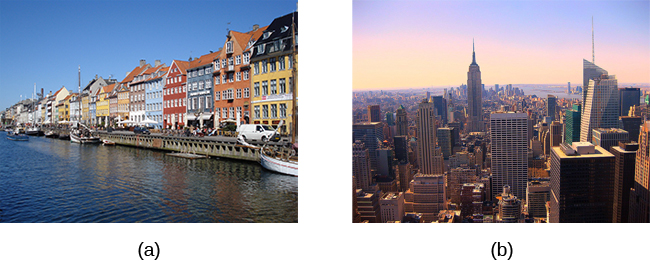| << Chapter < Page | Chapter >> Page > |
The study of happiness has grown dramatically in the last three decades (Diener, 2013). One of the most basic questions that happiness investigators routinely examine is this: How happy are people in general? The average person in the world tends to be relatively happy and tends to indicate experiencing more positive feelings than negative feelings (Diener, Ng, Harter,&Arora, 2010). When asked to evaluate their current lives on a scale ranging from 0 to 10 (with 0 representing “worst possible life” and 10 representing “best possible life”), people in more than 150 countries surveyed from 2010–2012 reported an average score of 5.2. People who live in North America, Australia, and New Zealand reported the highest average score at 7.1, whereas those living Sub-Saharan Africa reported the lowest average score at 4.6 (Helliwell, Layard,&Sachs, 2013). Worldwide, the five happiest countries are Denmark, Norway, Switzerland, the Netherlands, and Sweden; the United States is ranked 17th happiest ( [link] ) (Helliwell et al., 2013).

Several years ago, a Gallup survey of more than 1,000 U.S. adults found that 52% reported that they were “very happy.” In addition, more than 8 in 10 indicated that they were “very satisfied” with their lives (Carroll, 2007). However, a recent poll of 2,345 U.S. adults surprisingly revealed that only one-third reported they are “very happy.” The poll also revealed that the happiness levels of certain groups, including minorities, recent college graduates, and the disabled, have trended downward in recent years (Gregoire, 2013). Although it is difficult to explain this apparent decline in happiness, it may be connected to the challenging economic conditions the United States has endured over the last several years. Of course, this presumption would imply that happiness is closely tied to one’s finances. But, is it? This question brings us to the next important issue: What factors influence happiness?
What really makes people happy? What factors contribute to sustained joy and contentment? Is it money, attractiveness, material possessions, a rewarding occupation, a satisfying relationship? Extensive research over the years has examined this question. One finding is that age is related to happiness: Life satisfaction usually increases the older people get, but there do not appear to be gender differences in happiness (Diener, Suh, Lucas,&Smith, 1999). Although it is important to point out that much of this work has been correlational, many of the key findings (some of which may surprise you) are summarized below.
Family and other social relationships appear to be key factors correlated with happiness. Studies show that married people report being happier than those who are single, divorced, or widowed (Diener et al., 1999). Happy individuals also report that their marriages are fulfilling (Lyubomirsky, King,&Diener, 2005). In fact, some have suggested that satisfaction with marriage and family life is the strongest predictor of happiness (Myers, 2000). Happy people tend to have more friends, more high-quality social relationships, and stronger social support networks than less happy people (Lyubomirsky et al., 2005). Happy people also have a high frequency of contact with friends (Pinquart&Sörensen, 2000).

Notification Switch
Would you like to follow the 'Psychology' conversation and receive update notifications?